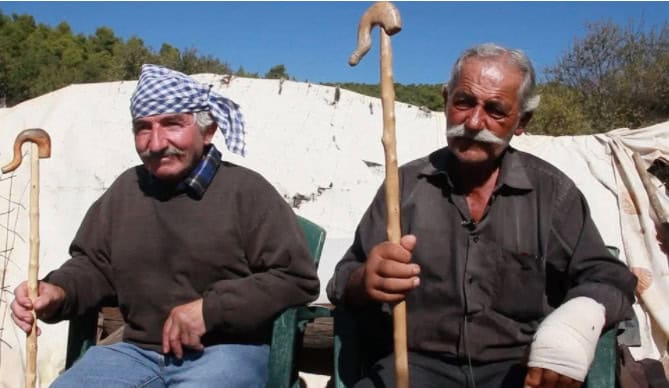The Arvanites, descendants of people who migrated from present-day Albania to Greece in the Middle Ages, possess a unique language and culture and exert a significant influence on Greek history, especially during the War of Independence.
There exists a considerable debate over the ethnic origins of the Arvanites, with some asserting Albanian heritage and others Greek. Nonetheless, it is generally accepted that they originated from southern Albania, migrating to southern Greece during the thirteenth and fourteenth centuries.
The interpretation of Arvanite origins is contingent upon individual perspectives regarding nationality and ethnicity, particularly as they emigrated from one region during a time when modern nation-states were undefined and resided in another for centuries.
Today, the majority of Arvanites in Greece identify themselves as Greek, both nationally and ethnically, rather than Albanian.
Origins and Historical Background Traditionally, Arvanites speak Arvanitika, a variant of the Tosk Albanian language, influenced significantly by Greek. This dialect bears resemblance to Arberesh, spoken by Arbereshe communities that, like the Arvanites, settled in Italy during the Middle Ages.
Arvanitika faces the risk of extinction due to dwindling usage among younger generations, who increasingly prefer Greek. Additionally, intermarriage outside their communities over the centuries has contributed to the erosion of their linguistic heritage.
Moreover, Arvanitika lacks legal recognition by the Greek state.
Arvanite populations are concentrated in the Peloponnese, Attica, and Boeotia, areas where they initially settled during the Middle Ages.
Historical narratives suggest various reasons for the Arvanite migration to Greece, including resettlement by Byzantine rulers to repopulate areas devastated by conflict or famine, as well as the recruitment of soldiers and labourers in the region.
Some historians propose that Christian Arvanites migrated to Greece as a response to the Ottoman conquest to resist Islamization.
Migration peaked in the fourteenth century and gradually tapered off by 1600. Arvanite communities traditionally thrived in small agricultural villages.
By the fifteenth century, Arvanites constituted the majority population in many settled regions.
Throughout the mid-twentieth century, widespread internal migration from rural Greek villages to urban centres contributed to Arvanitika's decline.
Arvanite women historically held prominent roles within their communities, participating in public discourse and even bearing arms.
During the Greek War of Independence, Arvanites played a pivotal role in resistance against Ottoman rule, producing iconic heroes such as Lascarina Bouboulina, Andreas Miaoulis, and Odysseas Androutsos.
Following the Greek War of Independence, the creation of defined nation-states in Europe reshaped geopolitical alliances. Despite the emergence of the Albanian nation-state, the Arvanites aligned themselves more closely with Greece.
Suppression of the Arvanite Language The term "Arvanite" likely derives from the southern Albanian region known as "Arvana" or "Arvon" during the Middle Ages.
Historically, Arvanites were often referred to generically as Albanians, though this practice waned in the nineteenth and twentieth centuries as distinctions between Arvanites and Albanians were emphasized.
During certain periods, Greek policies actively suppressed Arvanitika. Under Ioannis Metaxas' nationalist regime (1936-1940) and the subsequent right-wing military dictatorship (1967-1974), campaigns were implemented to discourage the use of Arvanitika, urging Arvanites to speak only Greek and forsake their native language.


